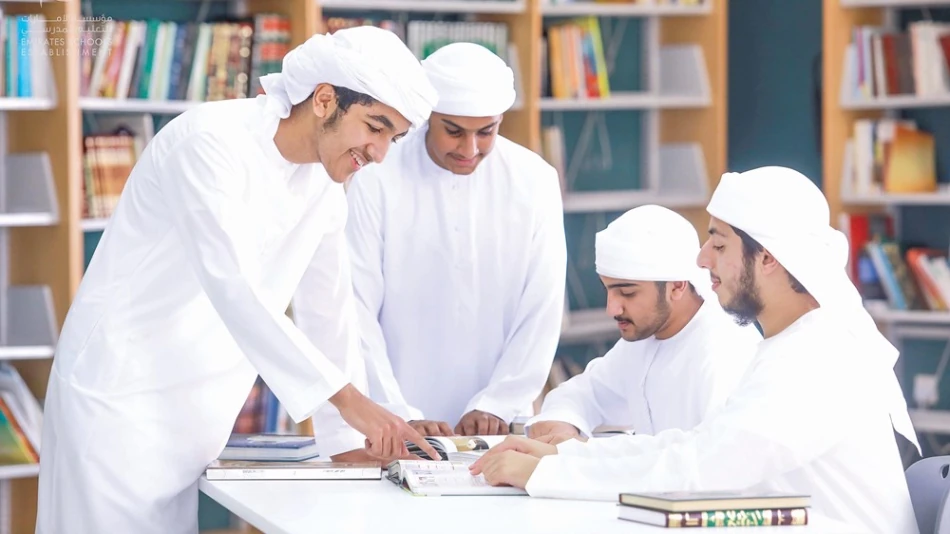
Higher Education and Scientific Research Unveils New Structure for University Academic Evaluation
UAE Revolutionizes University Calendar with Family-Focused Reform Starting 2025
The United Arab Emirates has announced a comprehensive overhaul of its university academic calendar, synchronizing higher education schedules with school holidays for the first time. Starting in the 2025-2026 academic year, all public and private universities will operate under a unified system designed to strengthen family cohesion and improve student wellbeing—a move that positions the UAE as a pioneer in student-centered educational policy in the Gulf region.
A Strategic Shift Toward Work-Life Balance in Education
The Ministry of Higher Education and Scientific Research's decision represents more than administrative convenience. By aligning university breaks with school holidays, the UAE addresses a growing global concern about student mental health and family stability in higher education. Dr. Abdulrahman Al Awar, Minister of Human Resources and Emiratisation and Acting Minister of Higher Education, emphasized that the reform creates "a more balanced distribution of study and vacation periods" to enhance academic performance and psychological wellbeing.
This approach contrasts sharply with traditional university systems in neighboring countries, where higher education institutions typically operate on independent schedules that often conflict with family time and social obligations.
The New Academic Framework
Synchronized Holiday Schedule
Under the new structure, universities will begin their academic year on August 25, 2025, and conclude on July 3, 2026. The standardized break periods include:
Winter Break: Four weeks from December 8, 2025, to January 4, 2026, resuming January 5
Spring Break: Two weeks from March 16-29, 2026, resuming March 30
Universities retain limited flexibility—up to one week before or after designated dates—to accommodate specific program requirements while maintaining break duration.
International Universities Maintain Autonomy
Recognizing the UAE's position as a regional education hub, international universities can continue following their home institution's calendar, preserving the country's appeal to global educational brands while ensuring local institutions serve Emirati family structures.
Regional Leadership in Educational Innovation
This reform places the UAE ahead of regional competitors in addressing modern educational challenges. While Saudi Arabia focuses on expanding university capacity and Qatar emphasizes research excellence, the UAE is pioneering holistic student experience design. The move aligns with the country's "Year of Community" initiative, demonstrating how educational policy can serve broader social objectives.
The timing is particularly strategic as Gulf nations compete to attract international students and faculty. By creating a more family-friendly academic environment, the UAE differentiates itself from purely academic-focused competitors.
Economic and Social Implications
Tourism and Service Sector Benefits
Synchronized holidays will likely boost domestic tourism and family-oriented businesses during peak break periods. Hotels, entertainment venues, and travel companies can now plan for predictable demand spikes when both university students and school children are on holiday simultaneously.
Workforce Planning Advantages
For families with children across different educational levels, the unified calendar reduces childcare complexity and allows parents to plan extended family activities. This could improve job satisfaction and productivity among UAE's educated workforce, many of whom balance demanding careers with family responsibilities.
Global Context and Future Implications
The UAE's approach reflects growing international recognition that traditional academic calendars may not serve modern student needs. Countries like Finland and Singapore have experimented with flexible academic scheduling, while some U.S. universities have introduced "wellness days" and extended breaks to address student mental health.
However, the UAE's comprehensive, nationwide approach is unprecedented in scale and coordination. Success here could influence educational policy across the Gulf Cooperation Council and beyond, particularly in countries seeking to balance rapid educational expansion with social stability.
The reform also positions the UAE favorably for post-pandemic educational trends, where flexibility and student wellbeing have become central concerns for families choosing higher education destinations. As international competition for students intensifies, the UAE's family-focused approach may prove a significant competitive advantage in attracting both regional and international students seeking a more balanced university experience.
Most Viewed News

 Sara Khaled
Sara Khaled






